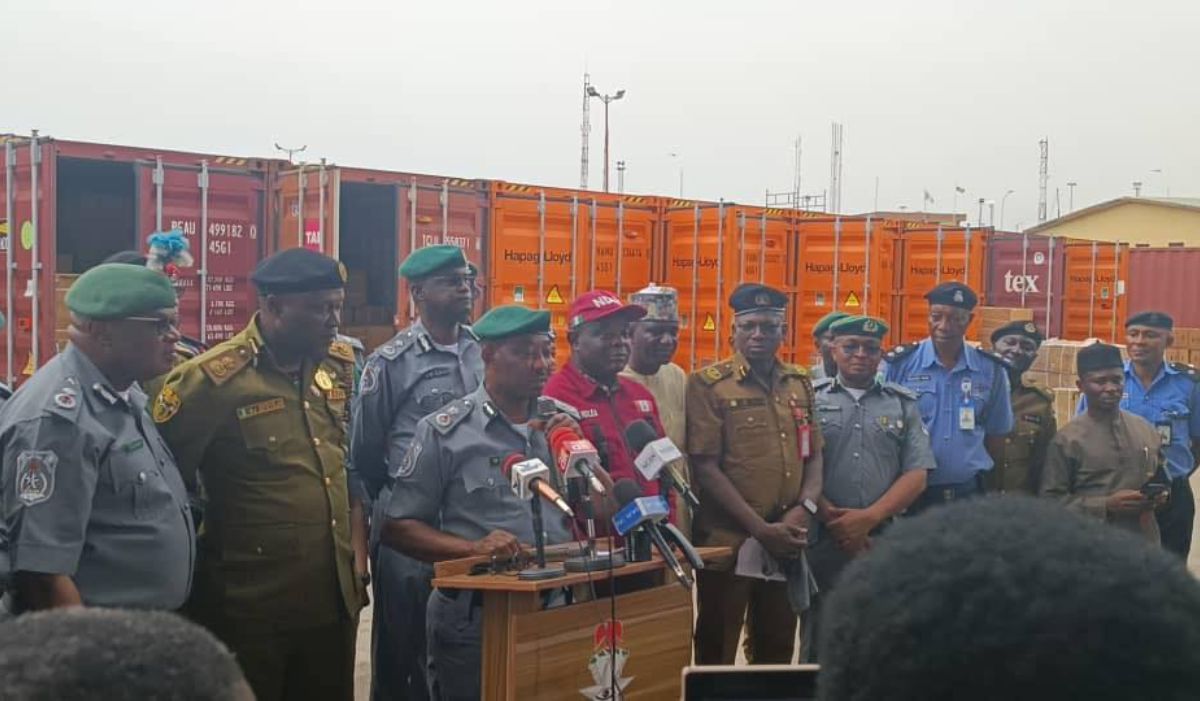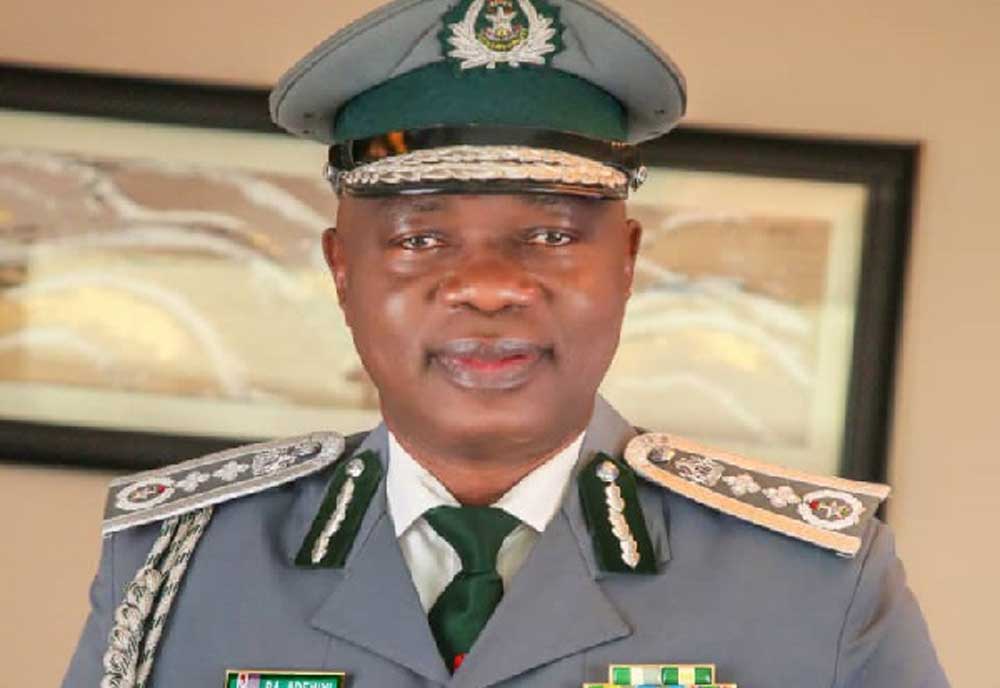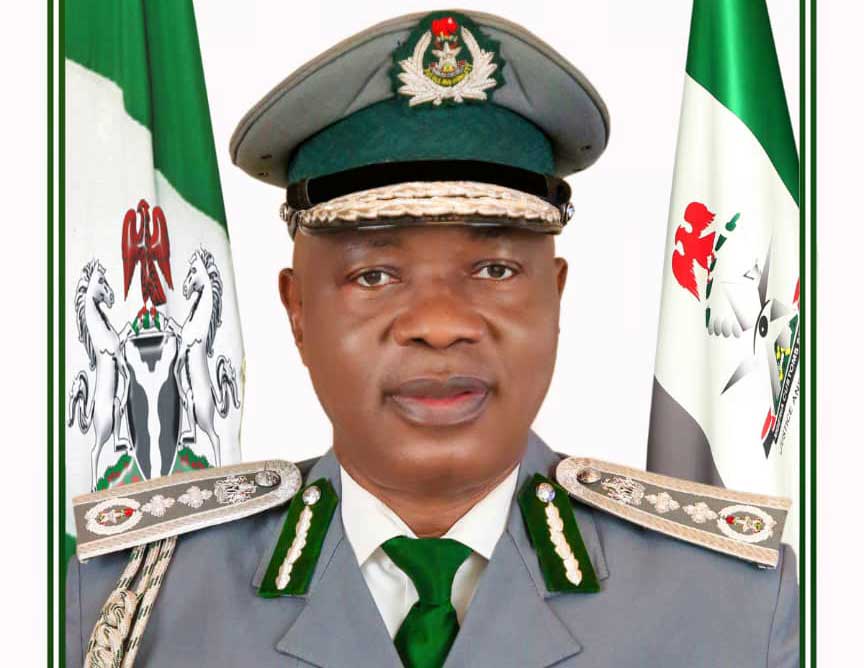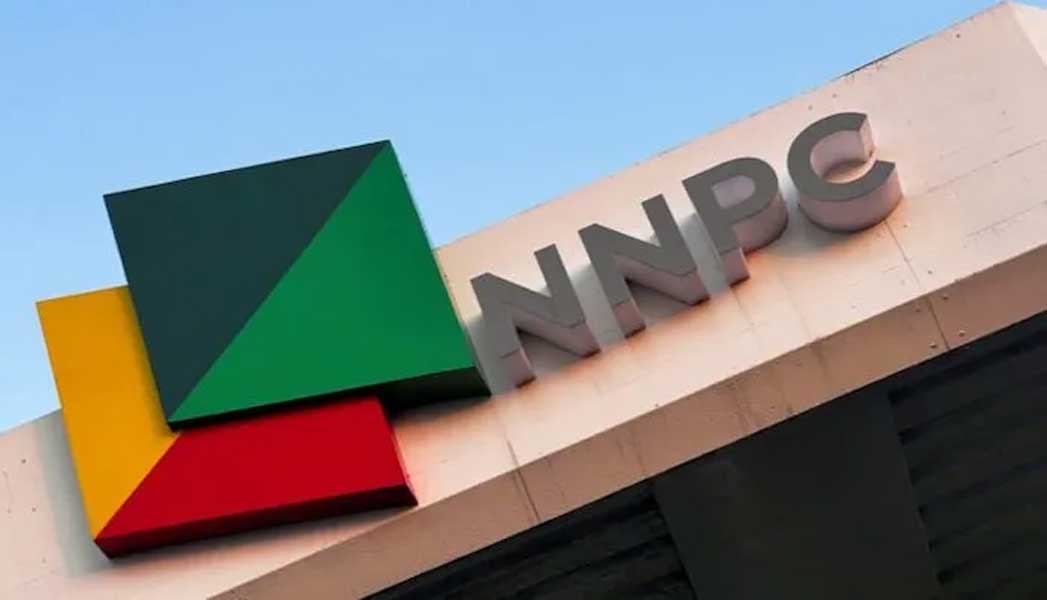Nigeria Customs Rakes In ₦1.3 Trillion Revenue in Q1 2025

The Nigeria Customs Service has announced extraordinary revenue collection of ₦1.3 trillion during the opening quarter of 2025, representing more than double the ₦600 billion generated in the corresponding period of 2023.
Comptroller-General Adewale Adeniyi has credited this performance to comprehensive institutional reforms implemented under President Bola Tinubu’s administration, as disclosed in a forthcoming State House documentary commemorating the President’s two-year milestone.
Presidential Spokesman Bayo Onanuga issued a statement explaining that Adeniyi linked the revenue increase to strategic improvements in technology utilisation, enhanced operational efficiency at ports, strengthened measures against revenue losses, and the establishment of a robust accountability framework throughout Customs operations.
“We collected ₦1.3 trillion in Q1 2025 alone. This is not due to higher import volumes. Imports have dropped due to foreign exchange constraints. What has changed is efficiency, transparency, and enforcement,” the Comptroller-General stated.
The Customs chief announced preparations for implementing the E-Customs Modernisation Project, a comprehensive $3.2 billion transformation initiative designed to digitise cargo handling, monitoring systems, and financial transactions across Nigeria’s maritime facilities and border crossings.
“We’re laying the foundation to move from a manual, paper-based system to a fully digital service. The E-Customs Project is central to our future. Once fully deployed, we project it will add $250 billion in cumulative revenue over 20 years,” he explained.
Adeniyi highlighted the recent introduction of the Authorised Economic Operator Programme, which is currently enrolling pre-qualified importers to provide expedited processing for compliant enterprises while reducing bottlenecks at port facilities.
“It’s about trust and efficiency. If you’re compliant, you get green-lane treatment. This is how modern customs systems work globally,” he noted.
The agency head confirmed that Customs has strengthened its anti-smuggling initiatives and addressed persistent revenue gaps. Over ₦64 billion has been recovered from imports that were previously under-assessed or undervalued during the past nine months, while significant smuggling networks operating at Seme, Idiroko, Katsina, and Sokoto border points have been eliminated.
Joint border surveillance units established in partnership with the Nigerian Army, Department of State Services, and Nigeria Police Force have demonstrated measurable success.
“We’re no longer just chasing smugglers in the bush. We’re using data, surveillance drones, and port intelligence to act in real-time. Once systemic leakages are now being plugged,” Adeniyi observed.
To facilitate commerce and reduce operational expenses for businesses, the Customs Service is accelerating the deployment of the National Single Window platform. This integrated digital system will consolidate all government departments involved in cargo clearance processes.
“Right now, you deal with up to 15 agencies manually. With the Single Window, you’ll do it all online, in one place. This will slash clearance time and costs,” the Comptroller-General described, noting that processing periods at Apapa and Tin Can facilities have decreased from 21 days to 7–10 days for compliant importers.
The agency has established expedited processing channels for agricultural exports and is collaborating with the Nigerian Export Promotion Council to optimise outbound shipment procedures, supporting government objectives for diversified export earnings.
“We’re promoting exports aggressively. Last year, Nigeria exported over ₦340 billion worth of solid minerals and agro commodities through formal channels, up by 38%. We’re targeting even more in 2025,” he reported.
Adeniyi revealed that the Customs Service is implementing comprehensive internal modernisation, having provided advanced training in data analytics, risk assessment, and artificial intelligence technologies to more than 1,800 personnel.
“Customs is no longer just about physical inspection. We are becoming an intelligence-led organisation, and our officers are being retrained to match global standards,” he emphasised.
“The President gave us a clear directive: block leakages, facilitate trade, and raise revenue without burdening Nigerians. That is what we are doing. And the results are beginning to speak for themselves.”




